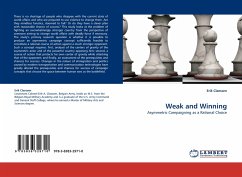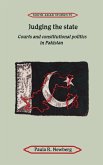This book aims at assessing the potential impact the European Court for Human Rights (ECtHR) has had on the conduct of Russian Federation during the armed conflict in Chechnya. The research proved that the ECtHR indeed managed to develop authority over the strategic behaviour of Russia and despite some limitations was capable of influencing the Russian conduct in the fight against Chechen separatists. On the other hand, the research also showed that Sweet's argument that judicialization is a form of socialization and states not only get progressively used to the judicial mechanism, but increasingly engage on a constructive level, has so far failed to materialise. To the contrary, with growing number of lost cases in Strasbourg, Russia tends to securitize the discourse applied both domestically and internationally vis-à-vis the Court.
Bitte wählen Sie Ihr Anliegen aus.
Rechnungen
Retourenschein anfordern
Bestellstatus
Storno








